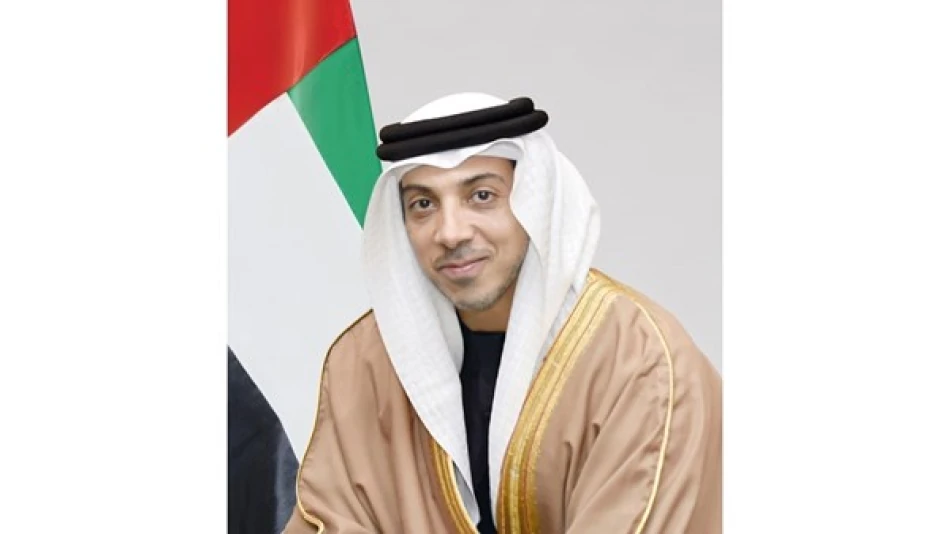
Emirati Leader Celebrates Emirati Women's Crucial Role in Family and Society
UAE Deputy President Celebrates Women's Pivotal Role in National Development
Sheikh Mansour bin Zayed Al Nahyan, UAE Deputy President and Deputy Prime Minister, has highlighted the central role of Emirati women in the nation's progress as the country observes Emirati Women's Day. His remarks underscore the UAE's ambitious "Mother of the Emirates 50:50" vision, positioning gender equality as fundamental to the nation's future economic and social development strategy.
Leadership Recognition Reflects Broader National Strategy
In a statement posted on X (formerly Twitter), Sheikh Mansour emphasized women's contributions across family, society, and various sectors of national work, spanning both historical achievements and contemporary roles. The Deputy President's public acknowledgment signals the UAE leadership's continued commitment to advancing women's participation in the country's transformation.
"On Emirati Women's Day, we congratulate women in the UAE and take pride in their role in the family and society, and their distinguished presence in various fields of national work, past and present," Sheikh Mansour stated. "Under the vision of 'Mother of the Emirates 50:50,' women continue their pivotal role in our journey toward the future."
The "Mother of the Emirates 50:50" Vision
Economic Implications of Gender Parity
The referenced "Mother of the Emirates 50:50" initiative represents more than symbolic recognition—it's an economic imperative. Countries achieving gender parity in workforce participation typically see GDP increases of 15-25%, according to McKinsey Global Institute research. For the UAE, with its diversification goals away from oil dependency, maximizing human capital through women's participation becomes strategically critical.
Regional Leadership in Gender Advancement
The UAE's approach contrasts sharply with regional neighbors and positions the country as a progressive leader in the Gulf. While Saudi Arabia has made significant strides under Vision 2030, increasing women's workforce participation from 20% to over 35%, the UAE has maintained consistently higher female participation rates across government and private sectors for over a decade.
Market and Investment Perspective
The emphasis on women's roles carries substantial implications for international investors and businesses. Companies operating in the UAE benefit from access to a highly educated female workforce—Emirati women comprise over 70% of university graduates. This talent pool advantage becomes increasingly valuable as the UAE positions itself as a global hub for technology, finance, and innovation sectors.
The government's consistent messaging on gender equality also signals policy stability, reducing regulatory risks for international corporations implementing diversity and inclusion strategies in their Middle Eastern operations.
Beyond Rhetoric: Measurable Progress
The UAE's commitment extends beyond ceremonial recognition. Women hold significant positions in government, including ministerial roles in advanced technology, youth, and international cooperation. The UAE Cabinet includes nine female ministers out of 31 total positions—a representation rate that exceeds many developed nations.
In the private sector, Emirati women increasingly occupy leadership positions in banking, telecommunications, and energy sectors, contributing to the country's knowledge economy transition. This trend supports the UAE's broader economic diversification strategy, reducing reliance on traditional energy exports while building sustainable competitive advantages in human capital.
The timing of these remarks, coinciding with Emirati Women's Day, reinforces the UAE's positioning as a forward-thinking nation where traditional values coexist with progressive policies—a balance that continues to attract international investment and talent to the region.
Most Viewed News

 Layla Al Mansoori
Layla Al Mansoori






